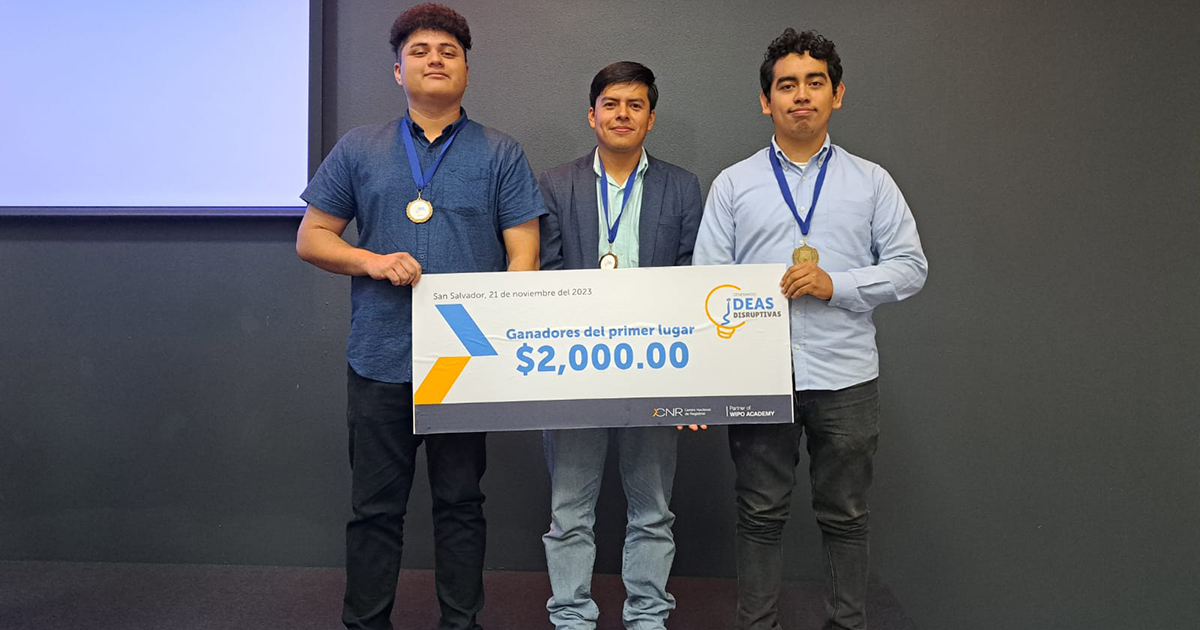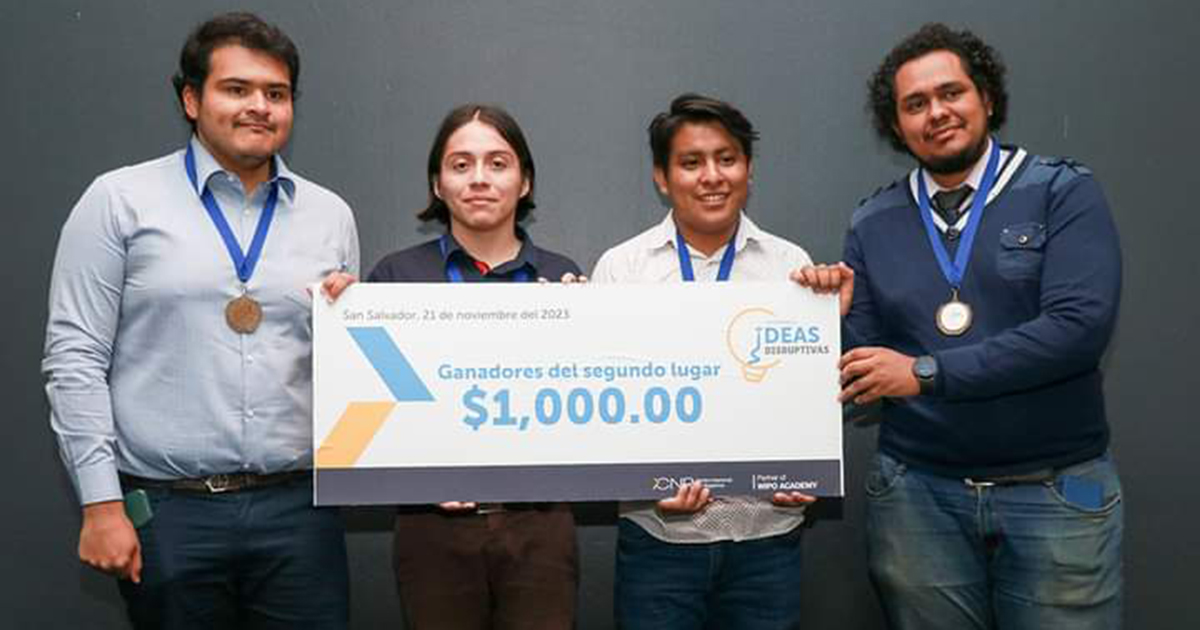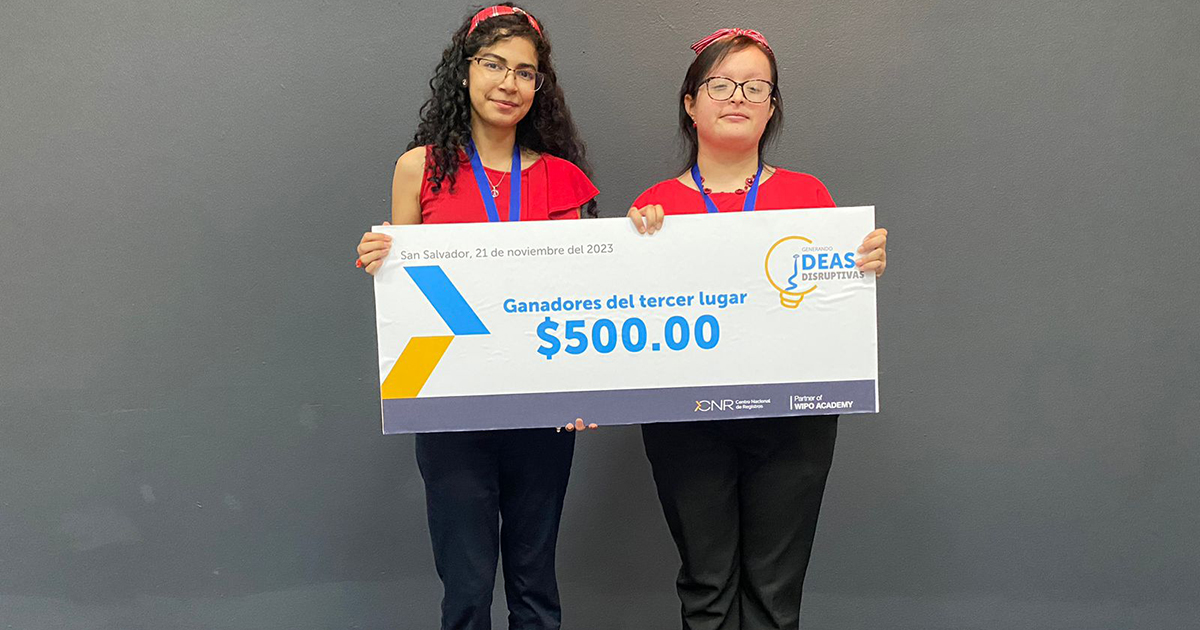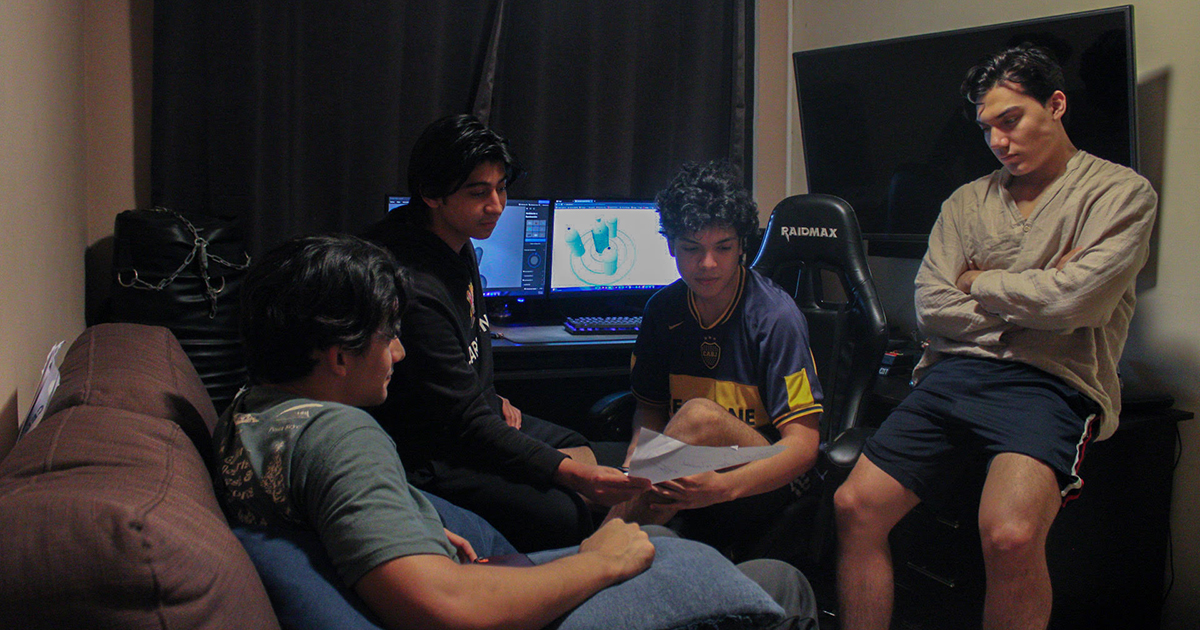El Salvador’s School of IP is Challenging its Community to Upskill and Upgrade with IP!
January 19, 2024
The School of Intellectual Property (EPI) of the National Center of Registries (CNR) in El Salvador, was spearheading several key projects in 2023 to maximize impact on intellectual property (IP) education, training, and skills-building. EPI is a WIPO Academy IP Training Institution (IPTI) that was established in 2015 and has carried out 154 training activities for 7,916 people since its creation. The recent impact initiatives of EPI are particularly geared towards the youth, women entrepreneurs, and academia.
Reaching out to women entrepreneurs
In April 2023, on the occasion of World IP Day, which was themed “Women and IP”, EPI launched a project with the support of the WIPO Academy to empower women entrepreneurs and creators from El Salvador. Twenty women entrepreneurs were selected from regions across the country and matched with 18 university students studying business, marketing and graphic design to develop a comprehensive business plan, in addition to a brand identity and logo to trademark for a final contest. The students benefitted from academic credits for graduation as compensation for their participation in this project.
As part of the project, all 20 women entrepreneurs successfully submitted their trademark applications with the CNR. The women entrepreneurs with the three best proposals were awarded with one-on-one mentoring from WIPO consultants on implementing their business plans.
Meet the winners
Karla Noemy Portillo de Avelar, was awarded for the business plan and branding of "Para el Alma", a business she launched in 2021 specializing in tea and infusion blends. She creates the blends herself using a variety of high-quality ingredients, spices and herbs inspired by smells of her childhood. She sells her blends through social media and her social circles. Karla always had a passion for tea and coffee culture, having taken tea sommelier, blender, and barista classes in the past. Her tea and infusion blend-making hobby was a way for her to distract herself from life's stressors and she wanted to share the calming effects of the teas with others.
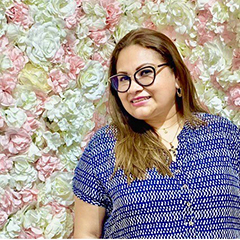
The pandemic gave her the opportunity to explore the possibility of monetizing her hobby by selling her blends to close family and friends. As a lawyer dedicated to public administration, she had general knowledge on IP, but through the competition she learned more about the process of registering a trademark. She is particularly happy and grateful for the mentoring phase of the competition because she is eager to learn more about the positioning of her business in the market and the legal issues that she should be aware of as a business owner.
IP will help me obtain an income and will allow me to expand my business under my brand name. My goal is to learn more about IP related business issues and grow my business which is marketed in various stores. I also plan on establishing a physical store.
Karla Noemy Portillo de Avelar, Founder of Para el Alma
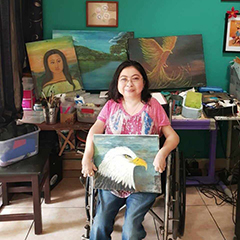
in 2022 (Image: Ricardo García)
Mirna Estela Martínez de García was also awarded for the business plan and branding for her existing business "M & G Arte y Más", which specializes in handicrafts, paintings, and handmade soaps. Mirna has been suffering from rheumatoid arthritis since she was 10 years old and has been in a wheelchair ever since. She always loved painting but stopped because of arthritis pain.
During the first lockdown of the COVID-19 pandemic she decided to go back to painting to generate an income for her family by selling her work and handicrafts. She officially launched her business in 2020 and is registered as an entrepreneur with a physical disability. She found out about the competition from the National Council for the Inclusion of Persons with Disabilities (CONAIPD) in El Salvador, which frequently recommends trainings to help her formalize and protect her business. Mirna is a landscape painter who sells her creative works to her friends, foundations and to the public through social media. She didn't know much about IP before entering the competition, but through building a brand and business plan she learned about the importance of IP for boosting her business, in addition to who she can turn to for questions and guidance on IP as a small-business-owner. Mirna hopes to give art workshops to other women and seniors with physical disabilities and she wants to sell her work internationally.
IP helps me build my brand and reputation among clients and generate a sustainable income. I feel more secure and supported as a creative entrepreneur knowing that my IP is protected.
Mirna Estela Martínez de García, Founder of M & G Arte y Más
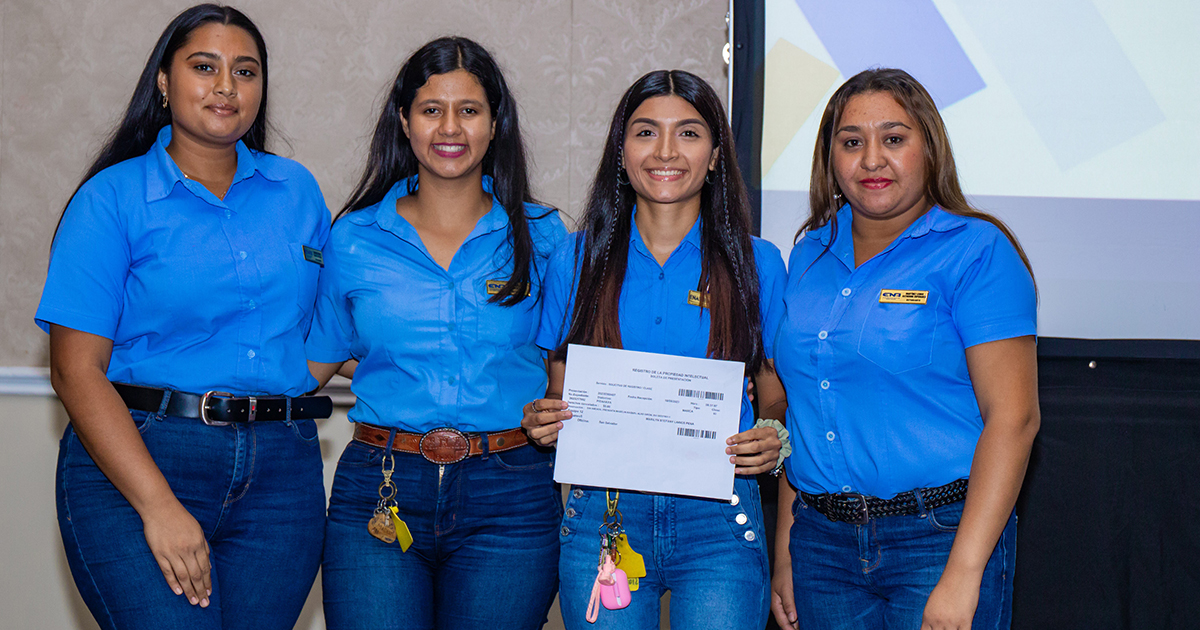
Mónica Meliza Linares Godoy, Madelin Raquel Alas Girón, Claudia Michelle Alfaro Guzmán, and Katherine Esperanza Martínez Lemus are good friends and classmates in their third year at the National School of Agriculture (ENA) of El Salvador, who teamed up to launch a business selling dragon fruit-based cosmetics products called "GAMA Pitahaya". They found out about the contest from their school, and were inspired to launch a business together in order to enter and benefit from the mentorship phase. They discovered the lip tinting qualities of pink dragon fruit by accident so they decided to create natural tinted lipsticks and lip glosses using fruit pigments. "GAMA Pitahaya" launched to the public during the last week of October 2023 at the ENA Field Day fair. Prior to their participation in the contest, they only knew about IP from an innovation class they completed in university. However, through the contest, they learned about the importance of IP to entrepreneurs in particular.
Now that we have the knowledge to protect our work, we feel more confident to launch and grow a business knowing that our efforts are protected and valued. With IP, we are able to generate income and ensure our business' competitive advantage. For this reason, we recommend other entrepreneurs to register their IP and claim their benefits.
Mónica Meliza Linares Godoy, Co-Founder of GAMA Pitahaya
Fortifying IP in academia
The EPI, with the support of the WIPO Academy, also worked with universities across El Salvador on the Project “IP as a tool to integrate the Academic Sector into the Marketplace”. Through this project, the WIPO Academy helped EPI to create model IP policies that can enable a structured way of managing the innovative and creative work generated in higher education institutions. An in-person work program was held from August 21 to 25, 2023 for university officials in El Salvador to guide them on the next operational steps for establishing IP policies to promote scientific research and technological development among their researchers. Coaching with selected universities is also underway to adapt the model policies to their academic frameworks. Also, university students of the legal clinics were trained on the basics of IP and fundamental elements of contracts relating to IP rights. Throughout the legal clinics, emphasis was placed on the elements that should be considered when advising entrepreneurs.
Additionally, a “Generating Disruptive Ideas” competition was held from September to November 2023 for local university students who developed marketable inventions, as part of the project. The inventions submitted for the competition solve specific technical problems in the energy, software, construction, health, environment, agriculture and engineering sectors. The three winners received cash prizes ranging from 500 to 2,000 US Dollars financed by CNR, alongside professional internship credits and mentoring from WIPO consultants on the next steps of implementing their IP strategies and business plans. All participants in the competition benefitted from a virtual workshop on pitching business ideas, and the role of IP in business. The participants also received, guidance from WIPO experts on how to improve their innovations.
Five groups made it to the finals for their innovative ideas, which were selected for their positive impacts on the country. CNR officials supported the finalists in submitting the forms to register their innovations so that the university students could benefit from IP protection.
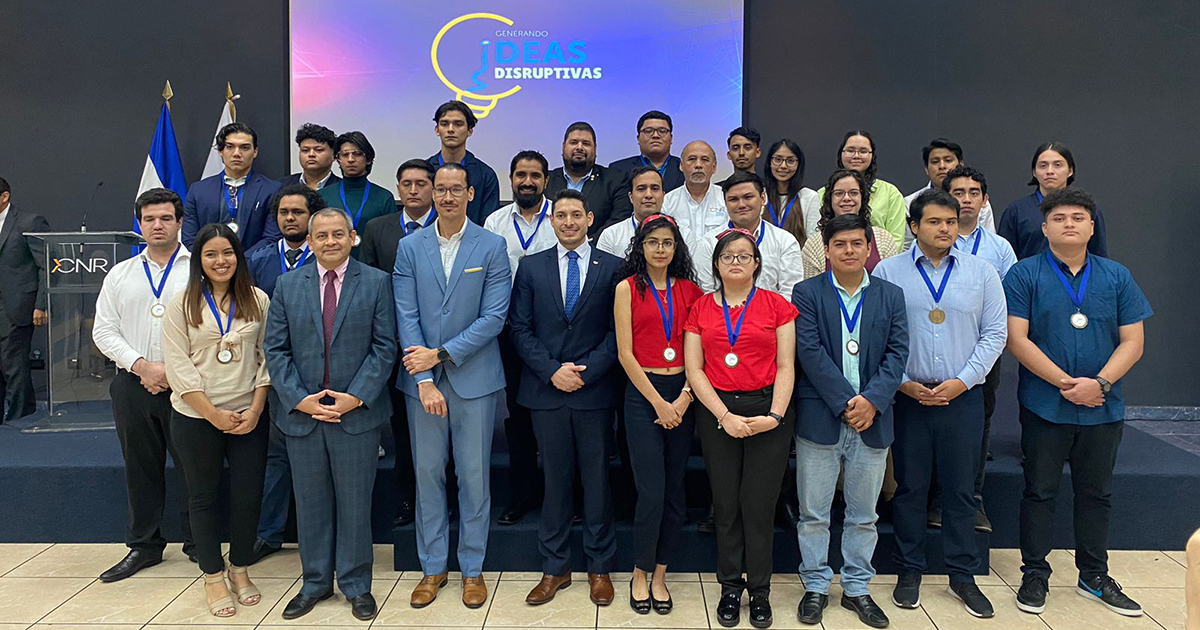
Meet some of the finalists
The winners of the “Generating Disruptive Ideas” competition were Juan Carlos Menjívar Molina (24), Nelson Fernando Mendez Cisneros (23) and Oscar Armando Jorge Deodanes (28). The group consists of undergraduate and doctoral physics students at the University of El Salvador. The students first met at the laboratory of Dr. Carlos Rudamas, where they joined the same research group working on nanostructures for environmentally friendly applications. They invented a nanostructure based on carbon that acts as a non-toxic semi-conductor, because traditional semi-conductors use heavy metals. Juan Carolos, Nelson and Oscar came up with the idea to cover LED lights with a polymer nanostructure, making the lights more energy efficient, and sustainable when disposed of in waste, as they would not contain toxic materials. Their goal was to contribute to the growth of technological products coming out of El Salvador, eventually creating jobs and boosting El Salvador’s economy.
Another group from Dr. Rudamas’ laboratory made it to the finals of the “Generating Disruptive Ideas” competition for the invention of an atmospheric pollutant detector, which uses sunlight to assess air quality. Jorge Cuadra (28), Alejandro Portillo (27), Marvin Ramos (22) and Miguel Alvarenga (23) are physics students at the University of El Salvador who met in the laboratory to work on a cost-effective and easy-to-use air pollution detector that can help their country increase the research being done on air pollution, eventually contributing to the improvement of air quality of El Salvador’s major cities, and potentially helping other neighboring countries facing similar challenges.
Andrea Celeste Mira Barraza (19) and Katherine Judith Rivas Cornejo (21) are classmates and close friends studying interior architecture at José Matías Delgado University. They created a “Rainbow Table”, which is multifunctional pivot table that rotates with two types of surfaces, whiteboard and chalkboard. They were inspired by the shapes and colors that children under the age of six use when drawing after observing their younger cousins play. Andrea and Katherine learned about IP thanks to the competition, and after being selected as finalists during the award ceremony on November 21, 2023, CNR supported them in the process of registering their multifunctional table as an industrial design. They hope to become furniture designers one day specializing in child-friendly furniture. From this experience they learned about the importance of IP protection if they wish to commercialize and profit from their designs.
Ariel Andrés Benitez Hernandez, Diego Alfonso Torres Mayorga and Pablo Enrique Vides Zavala are 19 year-old university students at the José Simeón Cañas Central American University who became close friends in high school. One day Ariel dreamt he was in a gas station where he was filling up his car up with plastic instead of fuel, so he pitched the idea to his friends Diego and Pablo, thinking maybe they could combine their expertise of business, industrial engineering and computer engineering to turn this dream into a reality. Luckily, Ariel’s older brother told the group about the “Generating Disruptive Ideas” competition on the same day, so they felt like it was a perfect coincidence and decided to sign up. The competition pushed them to develop the idea while learning about intellectual property for the first time. Thanks to Diego’s design and calculations they created a process for decomposing plastic into gasoline through the gradual heating of an iron tank with a coil. In early December 2023, CNR supported them in registering their innovation as a utility model, which Pablo drafted. With IP protection they hope to get investors so they can buy the materials needed to develop a prototype. Ariel, Diego and Pablo believe that their innovation can provide cheap energy, giving a second-life to plastic waste.
A videogame challenge for youth
To encourage the youth to learn about IP in an entertaining way, the EPI, in coordination with the WIPO Academy, launched the “Playing with IP” project, where computer science and graphic design university students were challenged to develop a fun videogame that teaches kids about IP. Along the way, teams were mentored on game development, gamification, and IP education for kids, as well as on IP rights for the videogame industry, making them discover its immense potential as a promising career path.
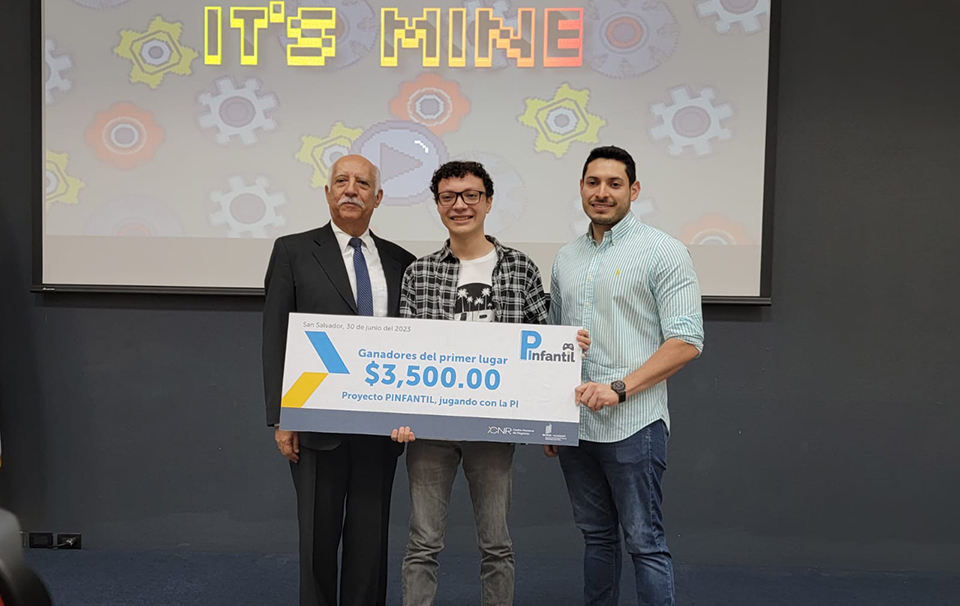
A competition to improve their prototypes was held as part of the project from April to June 2023 in partnership with the Technology and Innovation Support Center (CATI) of CNR.
On June 30, 2023, 17-year-old William Edmundo Montano Molina from Universidad Don Bosco (UDB), won the competition and received a cash prize of 3,500 US Dollars, funded by the CNR, for his creative video game “This Robot, It’s Mine”.
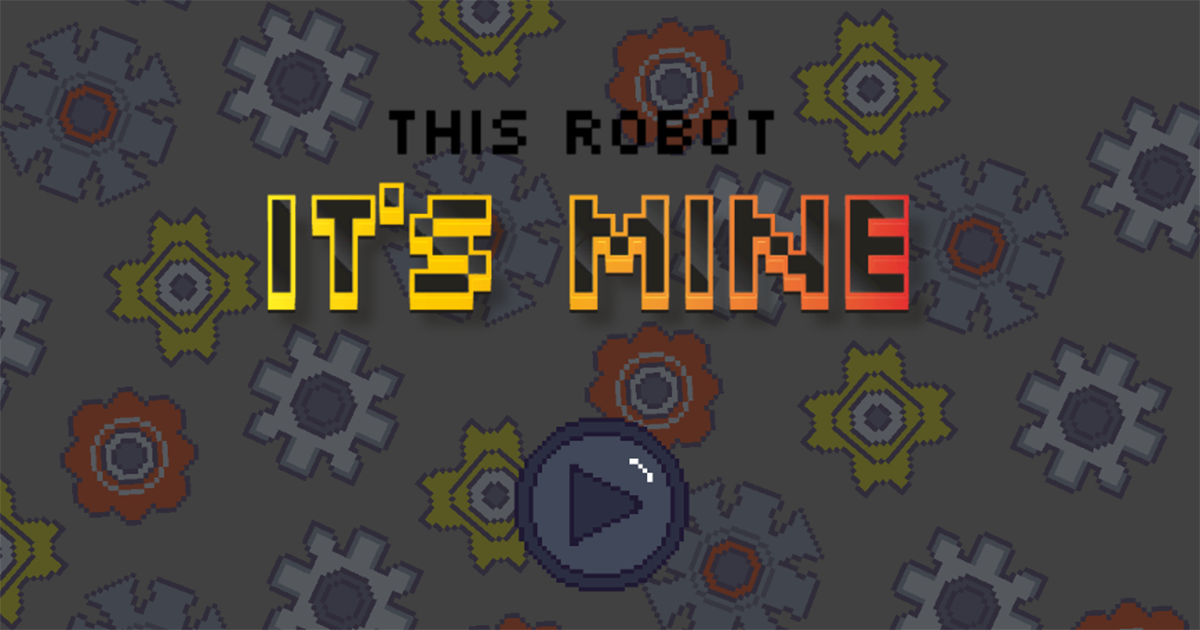
As a computer science and engineering student, and an avid gamer, William was always interested in developing his own videogames. He previously attempted to develop a game about cats, inspired by his two cats, Jolyne and Thorfinn, but when he received an email from his university announcing EPI’s competition he was inspired to step up to the challenge. He taught himself how to develop the videogame using YouTube videos and other free online resources. His universities studies also helped by complementing his knowledge on coding. His favorite part of the process was developing the storyline, as he enjoyed the creative outlet.
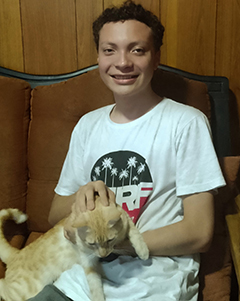
(Image: Raquel Eunice de Montano)
Players of “This Robot, It’s Mine” create their own robot from scratch and customize it, and at the end of the game, they get a certificate attesting to their ownership of their creation with a concluding remark on IP. The IP message is subtle but delivered in a very entertaining way for the players. After completing his personal challenge of developing a videogame, William is now motivated to create bigger and more complex videogames with creative storylines inspired by his favorite game of all time, Red Dead Redemption 2, which he played more than three times already because the storyline is so good.
I first learned about IP on my own from online resources, but through developing this game for the EPI competition, I learned even more. Now I know how IP can help me protect and profit from the videogames I develop.
William Edmundo Montano Molina, EPI beneficiary
EPI is planning on using William’s game as a tool in educational centers across El Salvador to promote IP among children. After winning the EPI videogame competition, the National School of Agriculture of El Salvador reached out to William for help with developing a videogame about school gardens.
The next challenge
EPI is dedicated to working on specialized skills-building programs for women and the youth, and in new IP areas for the academic sector such as innovation and green technologies. Some exciting upcoming projects from the EPI target key domestic sectors such as surf tourism and the creative industries among others.
What are the IPTIs?
The IPTIs are WIPO Academy’s sustainable, cost-effective, and scalable solution to local IP training and skills-building needs. Since the inception of the IPTIs Program in 2010, 18 IPTIs have been established and 14 are underway. Through the IPTIs, WIPO Academy supports member states in setting up their own training centers and continues to provide support to the IPTIs for developing, designing, and implementing training projects, programs, and services that serve common needs, in addition to providing spaces for IPTIs to collaborate and network.
